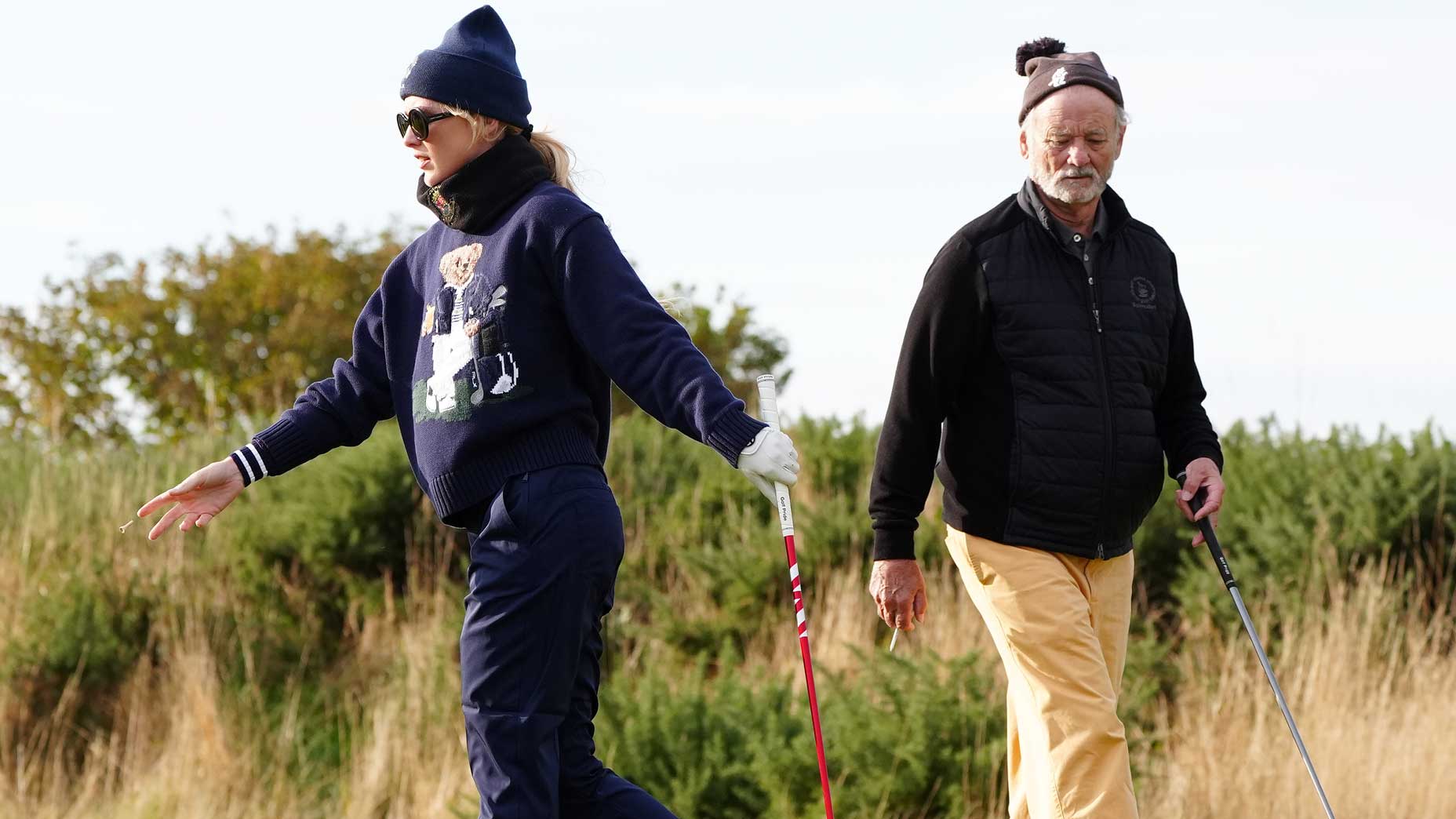Even though it’s the sport of pop stars, actors and celebrities, of Justin Timberlake, Kathryn Newton, Mark Wahlberg, Patrick Mahomes and hell, even Caitlin Clark, golf is still in a battle against its longtime reputation — namely, that it’s a sport for old codgers.
But I’ve got good news, golf people. I’m here to arm you with a fresh piece of ammunition to help in that fight.
(Also, for the older golfers who may be reading this: I think you’re great! Most of you are not “codgers,” you taught my generation the game, you’re still its backbone, you’re a core consumer, you should continue to play as often as you can and, by doing so, you’re in fact reaping some epic health benefits that your non-golfing counterparts are not. Keep swinging.)
Let’s start here: Golfers are, once again, playing the game at a record pace.
Torrid tee-time trends have continued for the fifth consecutive year; the post-Covid golf boom has brought new players to the game and those already playing are doing so more often. According to the National Golf Foundation, which keeps track of all sorts of fascinating industry facts and figures, 2024 is on track to be the fifth consecutive year that more than 500 million rounds will be played across the United States’ 15,000-plus golf courses.
Last year, 2023, set a record for the most play of all time. And this year? Golfers are playing even more. Through August, year-to-date play was up 1.4 percent over 2023’s record-setting pace. While it’s smart not to get too caught up in the specific percentage points — stuff like precipitation or warm weather can skew these numbers from year to year — the overall picture is clear: More golfers are playing more golf.
So who are those golfers? Here are a few things the NGF says about them:
-In 2023, 26.6 million people played golf on a course (18.4 million more played “off-course” at a simulator, Topgolf or comparable location)
-From 2020 through 2023, the number of on-course golfers in the U.S. rose by nearly 2.3 million people
-Since 2019, the average age of a golfer has dropped remarkably, from 44.6 to 43.5 years old
-In the past 10 years, golf participation among those 65 and older has increased by 64 percent
I think I speak for most golfers when I say that it’s great more people are playing golf (as long as you can still get a tee time). It’s great that younger people are playing more golf. And it’s great that older people are playing more golf, too. But despite that final bullet-point revelation — that older golfers are playing more golf — the NGF’s breakdown by age left me doing a double-take. As of the start of 2024, there are more golfers in the 18-34 year-old demographic than any other age bracket. Check it out in the chart below: There are 3.5 million junior golfers (6-17 years old), 6.3 million golfers between 18 and 34, 5.3 million between 35 and 49, 6.1 million between 50 and 64 and 5.4 million golfers over the age of 65.
I promised that one stat jumps out, so there it is: There are more golfers between 18 and 34 than there are over the age of 65.
If you ask the average person to describe the average golfer, I bet they’re more likely to describe someone 65-plus than sub-35. But it turns out it’s rarer to be in Jack Nicklaus’ age bracket than Scottie Scheffler’s. Rarer to be Bernhard Langer’s peer than Nelly Korda’s. Golfers are younger than I would have thought. Heck, once Tiger Woods turns 50 in 14 months, he’ll be older than 57 percent of his fellow golfers.
Before we get too carried away, though, there’s important context that comes with this data: The NGF isn’t talking about total rounds played. Those golfers who are 50-plus and 65-plus are likely to play more frequently (and spend more freely) than their younger golfing counterparts, so if your course isn’t flooded all day, every day by 20-somethings, don’t be surprised. But presumably when today’s young golfers get older they, too, will free up time for more rounds. And then we’ll hope those behind them take up the game, too.
Whatever age bracket you fall in, here’s hoping you rep it this weekend at a course near you.
You can find more fun NGF facts and figures here.
